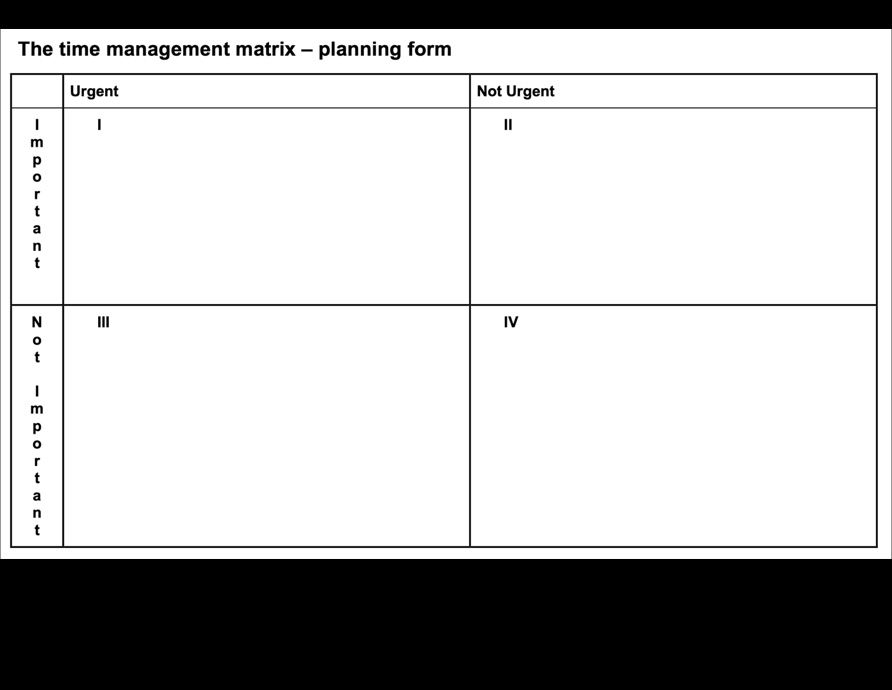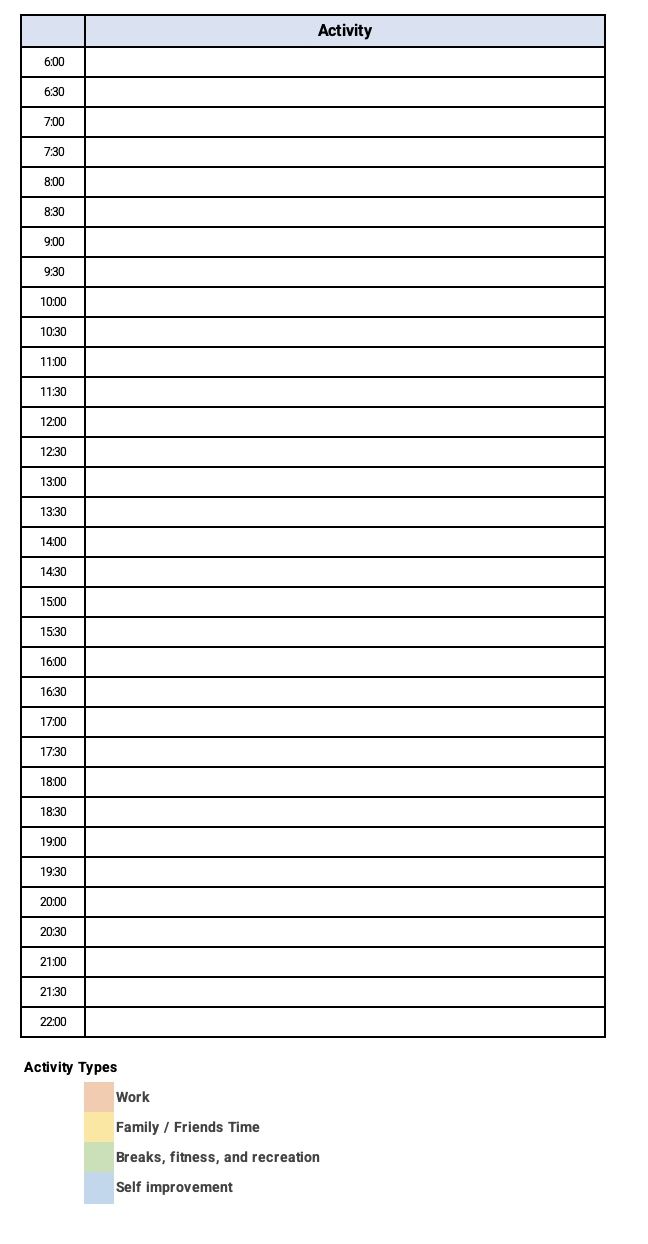Time Management

Time management is something that we must master, or it could master us. Much stress can happen if time management is not a priority. What is time management, and what skills are needed to get it under control? "Time management is best defined as the prioritization, scheduling, and execution of responsibilities to personal satisfaction"(Seaward, 2021). Effective time management is about balance and boundaries with ourselves and others. Learning time management skills can be challenging at first, but with some practice, they can become second nature. "Work–life integration means coordinating and blending elements of life into a unified whole where work, family, friends, and self are valued, and time is allocated proportionally"(Gade, 2019). This, as stated, means learning to prioritize the first things in your life and working from there. Time management is about priority; the rest will fall into place once you establish what comes first. One easy place to start is your to-do list. Sometimes, your to-do list can seem long and daunting, but determining what is essential and what is not is the first step in time management. One clever way to sort your to-do list is to rank it from A.B.C., with A =highest priority, B = moderate priority, and C = low priority. Time is essential and a limited resource, but some helpful tips can help you be better at making the most of each minute. Here are some things to keep in mind before getting started.
1. Know yourself, and make realistic expectations based on your personality and needs. For instance, take a moment and reflect on daily activities like work, family, friends, leisure, exercise, daily chores, and responsibilities that involve others such as your children, spouse, or others. Once you reflect on your weekly and daily activities, you can start setting up a schedule to take control of your time, allowing you to set healthy boundaries with yourself and others. "Scheduling involves the skills of organizations to know when is the best time to get things done and the means to do so"(Seaward, 2021). Avoid multitasking; however, grouping things like picking up the kids, going to the grocery store, going to the post office, and doing dry cleaning can all be done together so you are not wasting time.
2. Define your long and short-term goals. Figuring out what is essential and urgent and needs attention now can help you reach the desired outcomes, reduce stress, and visually see your to-do list." Document the associated time commitment next to each activity, which demonstrates a potential list of activities with their associated weighted importance and the corresponding action that should be taken according to the importance and urgency of the task"(Gade, 2019).

3. Learn to time map your daily schedule. Time mapping is an activity that can help you identify how you spend your time. It's a great way to visually see blindspots that time robbers like social media, video games, web searching, and television can steal your valuable time. "Time robbers are things that steal valuable time away from what really needs attention"(Seaward, 2021).

The above three skills may at first seem challenging and daunting, but it takes discipline and flexibility to learn to take control of your time before time takes control of you. A straightforward thing as waking up early to plan out your day can significantly impact whether you control your time or it controls you. "Discipline is essential concerning healthy boundaries so that you know when not to take additional responsibility, thus feeling overwhelmed and possibly victimized. Flexibility is critical in moving through each day, shifting with new priorities without feeling stressed about other things that must be accomplished"(Seaward, 2021). Life is ever-changing and creates new ideas, adventures, opportunities, and learning experiences; thus, discipline and flexibility in time management will allow you to choose how you spend your time daily.
Reference
Convey, S. (2004) The Seven Habits of Highly Effective People. New York, NY : Free Press
Gade, L., & Yeo, H. L. (2019). Work-Life Integration and Time Management Strategies. Clinics
in colon and rectal surgery, 32(6), 442–449. https://doi.org/10.1055/s-0039-1693011
Olic, A. (2022) The Time Mapping Guide http://Therapypet.org/?
p=g&gad_source=1&gclid=CjwKCAiAiP2tBhBXEiwACslfnveuUvQOU7pjv-
A3elvpf1gcA8xVwdFZaUQ06Fy_BdbGsH3X9GjMVhoCg7QQAvD_BwE
Seaward, B.L. (2021) Essentials of Managing Stress [5th Edition], Jones & Bartlett Learning,
LLC. Burlington MA.